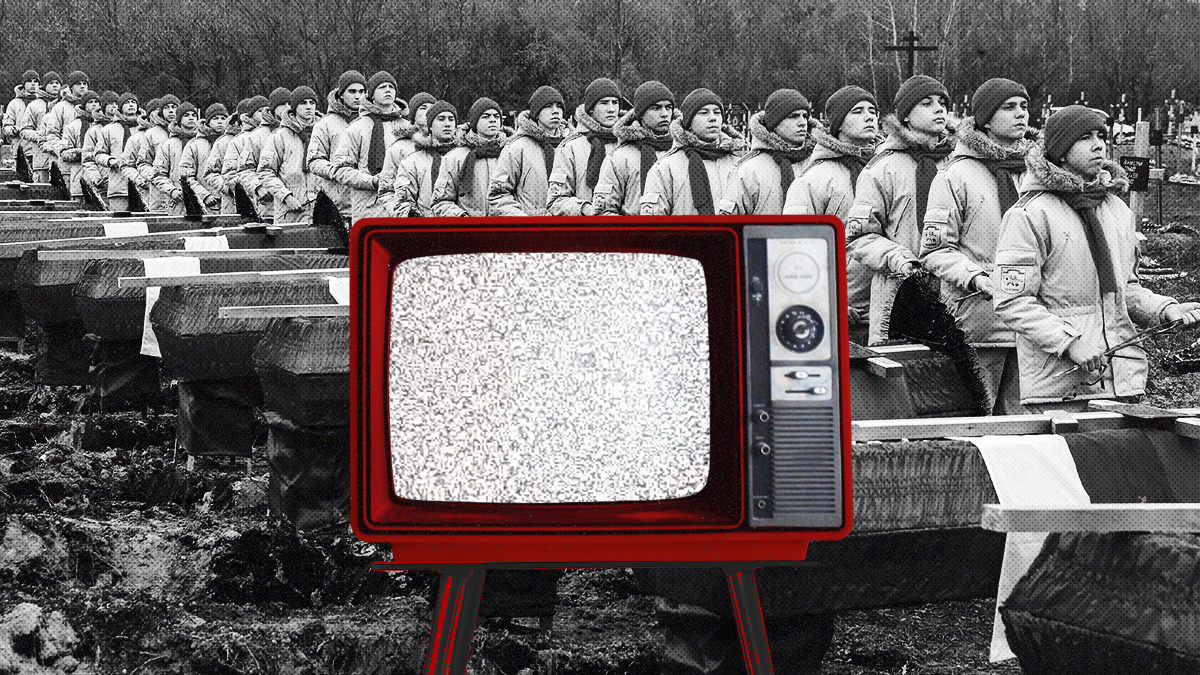February 23, 2024
How does Vladimir Putin manage to keep this up? For all the destruction he’s visited on Ukraine, his invasion has also inflicted so much damage on Russia.
There are the financial and economic costs. There’s the diplomatic isolation. There’s the exodus of hundreds of thousands of Russians who’d rather bet on a future abroad than support Putin’s war for the past at home.
But above all, there are the dead. The Kremlin doesn’t announce casualty figures, but a running tally by the BBC and the independent Russian outlet Mediazona estimates that at least 45,000 Russian soldiers have been killed in Ukraine.
To put that in perspective, it’s triple the number of Soviets killed in the USSR’s decade-long invasion of Afghanistan, often described as the “Kremlin’s Vietnam.”
In fact, it surpasses the number of Soviet and Russian troops killed in the entire period between 1945 and 2022, a period that also includes the Kremlin’s hamfisted and initially disastrous bid to suppress Chechen separatists and jihadists in the 1990s. To put it in American terms, those 45,000 dead would amount to 100,000 flag-draped caskets in the United States.
And yet, there’s hardly been a peep from Russian society.
To find out why, I sent a note to Lev Gudkov in Moscow. Gudkov is the academic director of the Levada Center, Russia’s last remaining independent pollster. I last saw him in person in 2018, at his messy office on Nikolskaya Street – a ritzy pedestrian boulevard – that’s just a five-minute walk from the Kremlin, which has long considered Levada a “foreign agent.”
At 77, Lev has the weary, knowing demeanor of a man who has spent his life asking questions in a society that is increasingly wary of answering them.
The Kremlin has pressured Levada over the years but always seemed to allow it to continue its work. Even autocrats, after all, need to know what their people are comfortable saying to strangers.
“The people don’t know how many are dead and wounded,” he told me. More than 60% of Russians get their news primarily from state-controlled TV, which will shout at you about neo-Nazis in Kyiv, perverts who run Europe, or cats thrown from Russian trains – but will not tell you about the bodybags coming home from Ukraine.
People who do speak out about casualties are arrested, harassed or, on occasion, driven to suicide, which is what happened this week to a hawkish military blogger who suggested Russia had lost 16,000 troops in its recent campaign for a single Ukrainian town.
Another problem, to adapt a Vietnam-era protest line, is that the Russians dying in Ukraine “ain’t no Gazprom executive’s son.”
“The funerals are held by individual families,” says Gudkov, “and its overwhelmingly conscripts from marginalized social groups who don’t have the power to mobilize.”
A look at the casualty map bears this out. Young men in remote and relatively poor Russian provinces like Tuva or Buryatia, for example, are up to 45 times as likely to die as their counterparts in Moscow or St. Petersburg.
All of this makes perfect sense. Russians don’t know about the casualties, face huge consequences for trying to find out, and are victim to the propaganda mill that keeps support for Putin above 80% and approval of his war not far behind.
But blaming this sort of collective delusion simply on a Very Bad Autocrat™ is too easy. The reality is that it can happen in democracies too, and it does.
On the eve of the second anniversary of Russia’s invasion of Ukraine, for example, I looked at a poll that showed 72% of the population approving of their government’s decision to launch a disastrous, unprovoked war.
But it wasn’t from Russia. It was from the US, and it was taken in 2003 to gauge popular support for the invasion of Iraq.
Say what you will about the failure of mainstream media to question the WMD narrative – and there is lots to say – but the US was, and is, a pluralistic paradise compared to today’s Russia.
But even so, it took four whole years of debacle in Iraq for a majority of Americans to finally decide that the invasion was a “bad decision.”
The emergence of social media in the years since has hardly helped. Nearly 20% of Americans today say pop star Taylor Swift was engaged in a Deep State psyop to sway the next election, while a third of Americans still think the last one was “stolen.” And as many as half of Hillary Clinton’s voters once believed Trump’s victory was the result of Russian tampering with vote tallies. None of the above is true.
The point is that you don’t actually have to live under the sway of a late-stage autocrat who controls the airwaves to believe bad, stupid, or crazy things.
A badly contaminated news environment can in some ways be as bad as a tightly controlled one.
From Your Site Articles
More For You
Most Popular
- YouTube
In this Quick Take, Ian Bremmer reacts to President Trump’s State of the Union address, calling it “a rehashing of the greatest hits” with little new policy direction.
Small business hiring surged 7% above the 2024 average in December, led by a surprise rally in retail. But with uncertainty still historically high and mounting concerns over tariffs, can this momentum survive 2026? Explore the data behind the resilience of the US small business sector. Get the latest economic insights from Bank of America Institute.
© 2025 GZERO Media. All Rights Reserved | A Eurasia Group media company.
